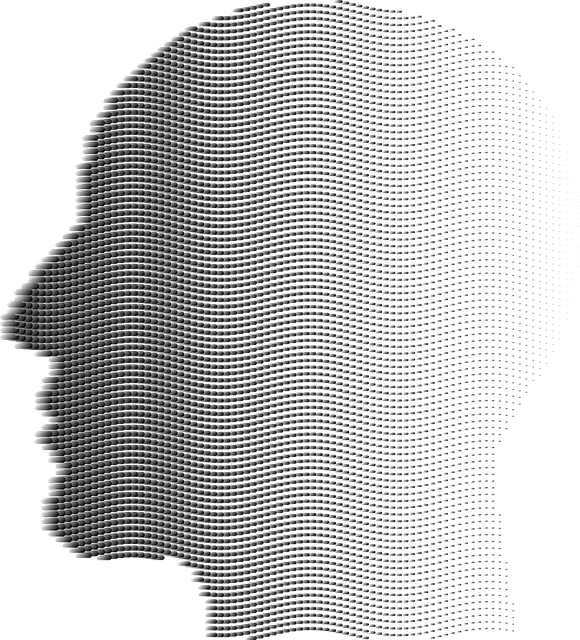Kaiser Permanente's Mental Health Centennial initiative offers a holistic approach to mental wellness by focusing on early identification, community engagement, and education. They develop innovative self-assessment tools tailored to individual needs, combining validated questionnaires with historical factors, social skills training, and inner strength development. Through comprehensive study, design, and risk management, these tools empower people to manage stress, anxiety, and depression. Kaiser Permanente Centennial promotes open dialogue, destigmatizes mental health conversations, and encourages proactive assessments within its healthcare network.
Mental wellness self-assessment tools play a pivotal role in proactive healthcare, especially within integrated systems like Kaiser Permanente. This article delves into the development of comprehensive self-assessment tools inspired by Kaiser Permanente’s Mental Health Centennial initiative. We explore the need for such tools, key components for effectiveness, and the iterative process from research to implementation. Additionally, we discuss strategies for integrating and promoting these tools within Kaiser Permanente to enhance mental wellness outcomes.
- Understanding Kaiser Permanente Mental Health Centennial: A Background
- Identifying the Need for Comprehensive Self-Assessment Tools
- Key Components of an Effective Mental Wellness Self-Assessment
- Development Process: From Research to Implementation
- Integrating and Promoting Self-Assessment Tools within Kaiser Permanente
Understanding Kaiser Permanente Mental Health Centennial: A Background

Kaiser Permanente Mental Health Centennial stands as a significant initiative within the healthcare system, dedicated to improving mental wellness across communities. This program recognizes the critical need for accessible and comprehensive mental health support, targeting various aspects of well-being. The focus is on fostering inner strength development through tailored interventions aimed at reducing symptoms of common mental health disorders like anxiety and depression. By integrating evidence-based practices, the Centennial aims to equip individuals with tools for managing stress and cultivating resilience, ultimately leading to improved quality of life.
The program’s strategic approach involves not only treating symptoms but also empowering people to take charge of their mental health. This includes promoting self-assessment tools that facilitate early identification of issues, enabling prompt intervention. Through community engagement and education, Kaiser Permanente aims to reduce the stigma surrounding mental health while providing anxiety relief and confidence boosting strategies for all ages.
Identifying the Need for Comprehensive Self-Assessment Tools

In today’s fast-paced world, mental wellness is as crucial as ever for overall well-being. The need for comprehensive self-assessment tools has become increasingly evident, especially in addressing the growing mental health concerns within communities like the Kaiser Permanente mental health Centennial region. These tools serve as a critical first step in identifying and managing various aspects of mental health, including Self-Esteem Improvement, Mood Management, and Stress Management.
By providing individuals with accessible means to evaluate their mental wellness, self-assessment tools empower them to take proactive measures. This is particularly important given the diverse nature of mental health issues affecting folks across all demographics. Comprehensive assessments enable tailored interventions, ensuring that each individual receives support aligned with their unique needs.
Key Components of an Effective Mental Wellness Self-Assessment

An effective mental wellness self-assessment tool should incorporate several key components to accurately gauge an individual’s psychological well-being. One of the primary aspects is the inclusion of standardized questionnaires and scales that assess various dimensions of mental health, such as anxiety, depression, stress, and emotional resilience. These tools must be validated and reliable, ensuring they provide consistent and accurate results across different populations, much like the resources offered by Kaiser Permanente mental health Centennial.
Additionally, incorporating elements that explore an individual’s history, including past traumatic experiences and access to support services like Trauma Support Services, can offer valuable insights. Social Skills Training and Inner Strength Development techniques are also beneficial, as they encourage self-reflection on interpersonal relationships, coping mechanisms, and personal growth strategies. By integrating these components, a comprehensive self-assessment can facilitate early intervention and promote proactive mental wellness management.
Development Process: From Research to Implementation

The development process of a self-assessment tool for mental wellness begins with extensive research, drawing insights from established practices within the healthcare sector, particularly focusing on Kaiser Permanente’s Mental Health services in Centennial. This involves studying existing tools, their effectiveness, and user feedback to identify gaps and opportunities for innovation. The next step is designing the assessment, ensuring it aligns with evidence-based methodologies for mental health screening and evaluation.
Here, the goal is to create a comprehensive yet user-friendly tool that can be easily integrated into daily routines, promoting self-care and early intervention. Risk management planning plays a crucial role in this phase, considering potential challenges and ethical considerations for both developers and users. This iterative process involves piloting and refining the tool, incorporating feedback from mental health professionals and end-users to ensure its validity, reliability, and accessibility before full implementation.
Integrating and Promoting Self-Assessment Tools within Kaiser Permanente

At Kaiser Permanente Centennial, we recognize the critical importance of mental wellness and strive to integrate innovative self-assessment tools that empower individuals to take charge of their emotional well-being. By promoting early detection and intervention, our goal is to foster a culture of open dialogue around mental health issues within our community. Self-assessment plays a pivotal role in this journey by providing individuals with a means to understand and track their emotional states, potentially helping to prevent escalating conditions like depression.
We are dedicated to developing user-friendly self-assessment tools that seamlessly blend with Kaiser Permanente’s comprehensive healthcare services. Through public awareness campaigns focused on mental health, we aim to destigmatize conversations around emotional intelligence and encourage individuals to engage in proactive mental wellness assessments. By integrating these tools into our existing programs, we empower our members to take an active role in their mental health journey while ensuring they have access to the support and resources they need within our trusted healthcare network.
The development of comprehensive mental wellness self-assessment tools, particularly tailored for the Kaiser Permanente Mental Health Centennial, is a significant step towards empowering individuals to take charge of their mental well-being. By integrating key components such as accessibility, validity, and user-friendliness, these tools have the potential to revolutionize mental health assessment within the organization. Through a meticulous development process, successful integration, and ongoing promotion, self-assessment can become an integral part of Kaiser Permanente’s holistic approach to mental healthcare, ultimately fostering better outcomes for patients and enhancing the overall mental wellness of the community.






